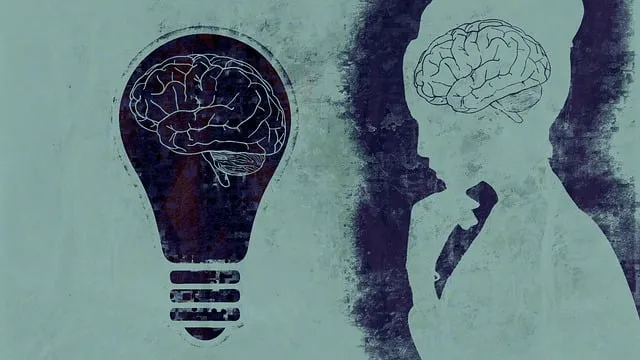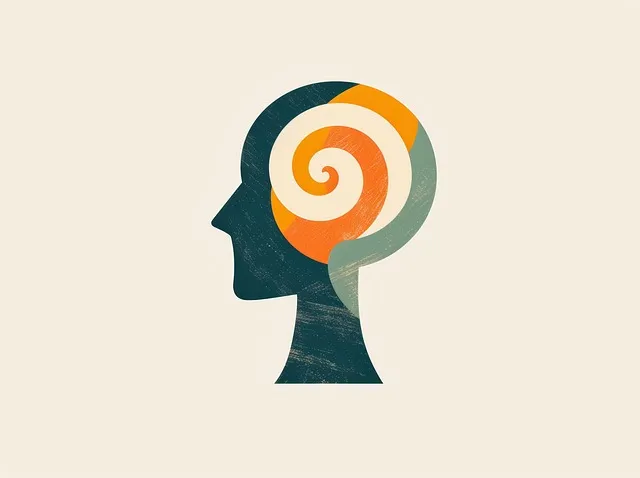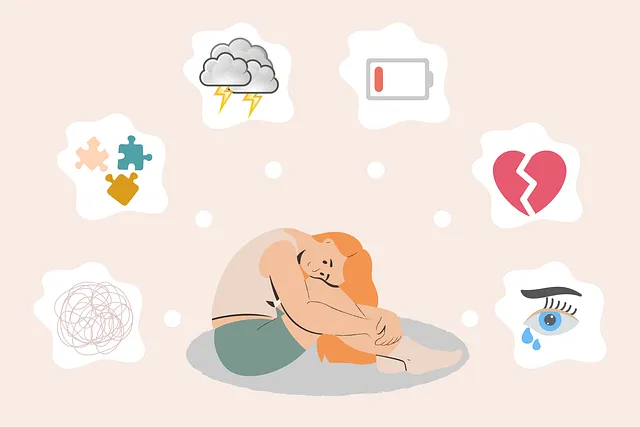Littleton Kaiser Permanente behavioral health services tackles the stigma around mental illness head-on, creating a supportive environment through various initiatives. They humanize mental health experiences with podcasts, offer comprehensive patient-centered care, and educate both patients and healthcare providers about mental wellness. Their advocacy groups provide safe spaces for open dialogue, reducing stereotypes and promoting self-care. By challenging societal norms through media representations, they aim to foster empathy and encourage individuals to prioritize their mental health without fear of judgment.
Mental illness stigma remains a significant barrier to individuals seeking help, often leading to delayed or avoided treatment. This article explores various efforts aimed at reducing this harmful social construct. We delve into the profound impact of stigma on mental health seekers and highlight innovative practices like those at Littleton Kaiser Permanente Behavioral Health Services, which offer model care approaches. Additionally, we discuss educational initiatives, advocacy groups, and media representation as powerful tools to break down misconceptions and foster understanding in communities.
- Understanding the Stigma: Its Impact on Mental Health Seekers
- Littleton Kaiser Permanente Behavioral Health Services: A Model for Care
- Educational Initiatives: Breaking Down Barriers and Misconceptions
- Advocacy and Support Groups: Empowering Individuals and Communities
- Media Representation and its Role in Shaping Public Perception
Understanding the Stigma: Its Impact on Mental Health Seekers

Stigma surrounding mental illness can create significant barriers for individuals seeking help. It often manifests as negative attitudes and beliefs about those with mental health conditions, leading to discrimination and social isolation. This stigma can discourage people from discussing their struggles openly or pursuing treatment, exacerbating existing symptoms and hindering recovery. At Littleton Kaiser Permanente behavioral health services, we recognize the profound impact of this internalized shame and fear on individuals’ willingness to access care.
The consequences of stigma are far-reaching, affecting not only those experiencing mental illness but also society as a whole. It contributes to the perpetuation of misconceptions about specific disorders, fueling further misunderstanding and fear. By promoting open conversations through initiatives like our Mental Wellness Podcast Series Production, we aim to humanize mental health experiences, challenge stereotypes, and foster an environment where individuals feel safe to seek support for their well-being, including exploring effective stress reduction methods and depression prevention strategies.
Littleton Kaiser Permanente Behavioral Health Services: A Model for Care

Littleton Kaiser Permanente Behavioral Health Services stands as a beacon of hope and progressive care for those grappling with mental wellness challenges. This model program prioritizes patient-centered care, integrating evidence-based treatments with holistic approaches to address not just symptoms but also underlying causes. By fostering an environment that encourages self-care practices and coping skills development, they empower individuals to take charge of their mental health journeys.
Through innovative therapies, accessible resources, and a supportive community, Littleton Kaiser Permanente Behavioral Health Services offers a comprehensive framework that challenges stigmatizing perceptions surrounding mental illness. Their success lies in personalized care plans, fostering open dialogue, and celebrating recovery milestones. This approach not only improves individual outcomes but also contributes to a more inclusive society where mental wellness is nurtured and supported.
Educational Initiatives: Breaking Down Barriers and Misconceptions

Educational initiatives play a pivotal role in reducing the stigma associated with mental illness, particularly when led by reputable healthcare institutions like Littleton Kaiser Permanente behavioral health services. By implementing comprehensive programs, they aim to break down barriers and misconceptions that often surround psychological disorders. Through workshops, seminars, and awareness campaigns, these initiatives educate both the public and healthcare providers about various mental health conditions, their symptoms, and effective treatment options.
Litttleton Kaiser Permanente’s efforts in this regard go beyond mere information dissemination. They focus on fostering cultural sensitivity in mental healthcare practice, emphasizing the importance of understanding diverse backgrounds and beliefs when providing support. Additionally, they promote burnout prevention strategies for healthcare providers, acknowledging that caregiver well-being is essential for delivering quality care. Such holistic approaches not only contribute to better patient outcomes but also encourage open conversations about emotional healing processes, ultimately fostering a more inclusive and supportive society.
Advocacy and Support Groups: Empowering Individuals and Communities

Advocacy and Support Groups play a pivotal role in mental illness stigma reduction by empowering individuals and fostering understanding within communities. Organizations like Littleton Kaiser Permanente behavioral health services lead the charge, offering not just medical care but also platforms for connection and shared experiences. These groups create safe spaces where people can openly discuss their struggles, gain insights from others’ journeys, and learn effective coping mechanisms.
Through regular meetings, workshops, and online forums, advocacy groups provide a supportive network that challenges negative stereotypes associated with mental health issues. They encourage self-advocacy, promote self-esteem improvement, and cultivate positive thinking, ultimately helping members navigate life’s challenges with resilience and dignity.
Media Representation and its Role in Shaping Public Perception

The media plays a significant role in shaping public perception about mental illness, often influencing how individuals from all walks of life view and understand these health conditions. Portrayals in films, television shows, news articles, and social media platforms can either perpetuate harmful stereotypes or challenge societal norms, contributing to the broader mental illness stigma reduction efforts.
At Littleton Kaiser Permanente behavioral health services, we recognize the power of media representation. By showcasing diverse narratives that highlight the human experience of mental illness, we aim to foster empathy and promote understanding. Encouraging positive representations that emphasize recovery stories and self-esteem improvement can significantly impact public dialogue. Such efforts not only fight against negative stereotypes but also encourage individuals struggling with their mental health to seek support without fear of judgment, ultimately advocating for a more inclusive society where everyone can practice positive thinking.
Mental illness stigma reduction is a multifaceted approach, as demonstrated by initiatives like the Littleton Kaiser Permanente behavioral health services. Combining educational efforts, advocacy groups, and mindful media representation can significantly enhance public understanding and support for individuals facing mental health challenges. By breaking down barriers and misconceptions, we can create a more inclusive society that empowers those with mental illnesses to seek help without fear of judgment, ultimately improving overall mental health outcomes.






